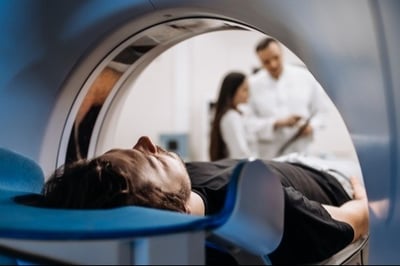Pancreatic Cancer Screening Study for People with ATM, BRCA1, BRCA2 or PALB2 Mutations

Prevention
Pancreatic cancer screening study for people with ATM, BRCA1, BRCA2 or PALB2 mutations
Clinicaltrials.gov identifier:NCT05058846
Study Contact Information:
For additional information, please contact:
Phu Lam
By phone: 415-353-8337
By email: [email protected]
About the Study
This study will look at how often screening detects abnormal findings in people with inherited mutations in , , or , who are undergoing pancreatic cancer screening. Researchers will study how often screening finds pancreatic cancer and precancerous changes. The study will also review the rate of procedures like biopsies and surgeries among participants.
Additionally, researchers will collect saliva, blood, and tissue samples, along with imaging data and health behavior information. Finally, the study will explore participants’ knowledge, attitudes, and anxiety about pancreatic cancer screening over time.
This Study is Open To:
To participate, people 18 years or older must meet the following criteria:
- be able to read and speak English.
- have had genetic testing showing an , , or mutation.
- do not have a strong family history of pancreatic cancer, which means not having one or more close relatives, (such as a parent, sibling, grandparent, or aunt/uncle) with pancreatic cancer.
This Study is NOT Open To:
People with any of the following may not participate:
- younger than age 18.
- have been diagnosed with pancreatic cancer.
- are pregnant.
What the Study Involves
Participants will be assigned to one of two groups:
- Group One: includes people without a strong family history of pancreatic cancer and who have an , , or mutation. Participants in this group will:
- choose to have an MRI/Magnetic Resonance Cholangiopancreatography (MRCP) and Endoscopic (EUS) every year for 10 years, or they may opt out of the annual screening.
- have the opportunity to complete brief questionnaires and provide blood, saliva, and tissue samples.
- Group Two: includes people with a strong family history of pancreatic cancer and who have an , , or mutation. Participants in this group undergo MRI/MRCP or alternating MRI/MRCP and EUS every year for 10 years.
Study Contact Information:
For additional information, please contact:
Phu Lam
By phone: 415-353-8337
By email: [email protected]
Locations:
California
City: San Francisco RECRUITING
Facility: University of California San Francisco
Contact Info:
[email protected]
415-353-8337
[email protected]
877-827-3222
Pamela N Munster, MD
Prevention
Pancreatic cancer screening study for people with ATM, BRCA1, BRCA2 or PALB2 mutations
Clinicaltrials.gov identifier:NCT05058846
Study Contact Information:
For additional information, please contact:
Phu Lam
By phone: 415-353-8337
By email: [email protected]